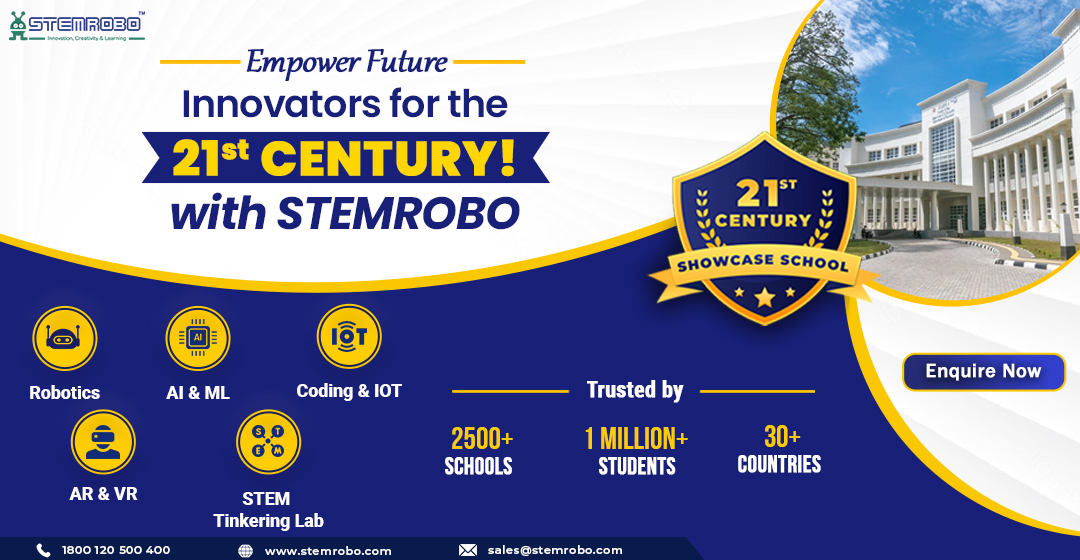In the ever-evolving landscape of education, the significance of curricula in shaping students’ future-ready skills cannot be overstated. Today, educational programs are tasked with not only imparting knowledge but also cultivating the critical skills necessary for success in the 21st century.
The Evolution of Education: Beyond Knowledge Transfer
Traditional educational models primarily focused on transferring knowledge, often neglecting the holistic development of students. However, the contemporary educational paradigm recognizes that students need more than just information; they need a set of skills that will empower them to thrive in an ever-changing world.
21st-century skills encompass a diverse set of abilities that extend beyond traditional academic knowledge. These skills include critical thinking, creativity, collaboration, communication, adaptability, and problem-solving. A STEM curriculum that successfully nurtures these skills goes beyond rote memorization, encouraging students to actively engage with the learning process.
Project-Based Learning: Fostering Collaboration and Creativity
Innovative curricula leverage project-based learning as a powerful tool to cultivate collaboration and creativity. Students are not passive recipients of information but active participants in projects that require them to collaborate with peers, think critically, and creatively solve problems. This approach mirrors the real-world scenarios students will encounter in their future careers.
Hands-On Exploration: Igniting Curiosity and Critical Thinking
By incorporating hands-on exploration into the curriculum, students are encouraged to question, experiment, and discover. This approach fosters curiosity and critical thinking, laying the foundation for a mindset that thrives on inquiry and problem-solving. Students become adept at analyzing information, making informed decisions, and adapting to different situations.
Cross-Disciplinary Connections: Bridging Gaps in Understanding
Innovative curricula recognize the interconnectedness of knowledge across disciplines. Rather than compartmentalizing subjects, these curricula encourage cross-disciplinary connections. Students understand that real-world challenges often require a multifaceted approach, and by integrating knowledge from various domains, they are better equipped to address complex issues.
Technology Integration: Preparing for the Digital Age
The 21st century is defined by rapid technological advancements. Innovative curricula seamlessly integrate technology into the learning process. Students not only learn to use technology as a tool but also understand its ethical implications, ensuring they navigate the digital age responsibly. Technological literacy becomes a natural outcome of the learning experience.
Cultivating Soft Skills: Effective Communication and Collaboration
Beyond technical skills, successful professionals in the 21st century Skills in schools need strong soft skills. Innovative curricula prioritize the development of effective communication and collaboration skills. Students engage in activities that require clear articulation of ideas, active listening, and constructive feedback, preparing them for the demands of teamwork in the professional world.
Emphasis on Lifelong Learning: Adapting to Change
In a world where change is constant, the ability to learn continuously becomes a valuable skill. Innovative curricula instill a love for learning that goes beyond the classroom. Students develop the resilience and adaptability to embrace change, viewing challenges as opportunities for growth rather than obstacles.
Traditional assessment methods often fall short in capturing the holistic development of students. Innovative curricula employ diverse assessment tools, including project evaluations, presentations, and portfolios, providing a more comprehensive understanding of students’ abilities. This approach ensures that assessments align with real-world expectations.
Teacher as Facilitator: Nurturing Independence and Initiative
Innovative curricula redefine the role of the teacher from an information provider to a facilitator of learning. Teachers guide students through the learning process, encouraging independence and initiative. This shift empowers students to take ownership of their education, fostering a sense of responsibility and self-directed learning.
Successful curricula extend beyond the confines of the classroom, engaging students with the real world. Innovative curricula facilitate community partnerships, internships, and real-world projects. This connection to the community not only enhances the relevance of learning but also instills a sense of civic responsibility in students.
Preparing Global Citizens: A Global Perspective
Innovative curricula acknowledge the global interconnectedness of the 21st century Skills for Students are exposed to diverse perspectives, cultures, and global issues. This global awareness prepares them to be responsible and empathetic global citizens who can navigate the complexities of an interconnected world.
Shaping Leaders of Tomorrow
In conclusion, the impact of innovative curriculum on students’ 21st-century skills transcends the boundaries of traditional education. By prioritizing collaboration, creativity, critical thinking, and adaptability, these curricula mold students into well-rounded individuals equipped to navigate the challenges of the modern world. As education evolves to meet the demands of the 21st century, innovative curricula stand as beacons of transformation, shaping leaders who are not just knowledgeable but also resilient, creative, and prepared to make a positive impact on the world.





